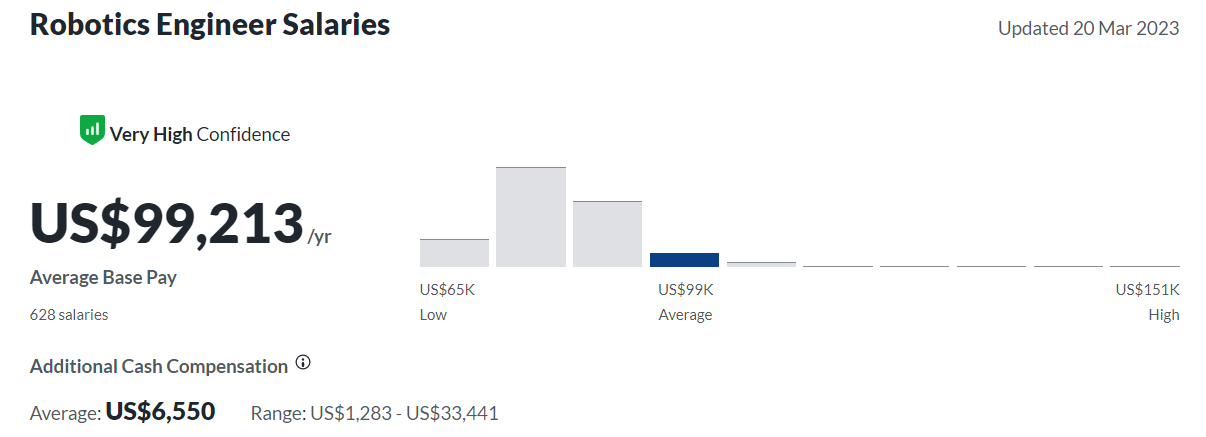Robotics And Automation Engineering Salary
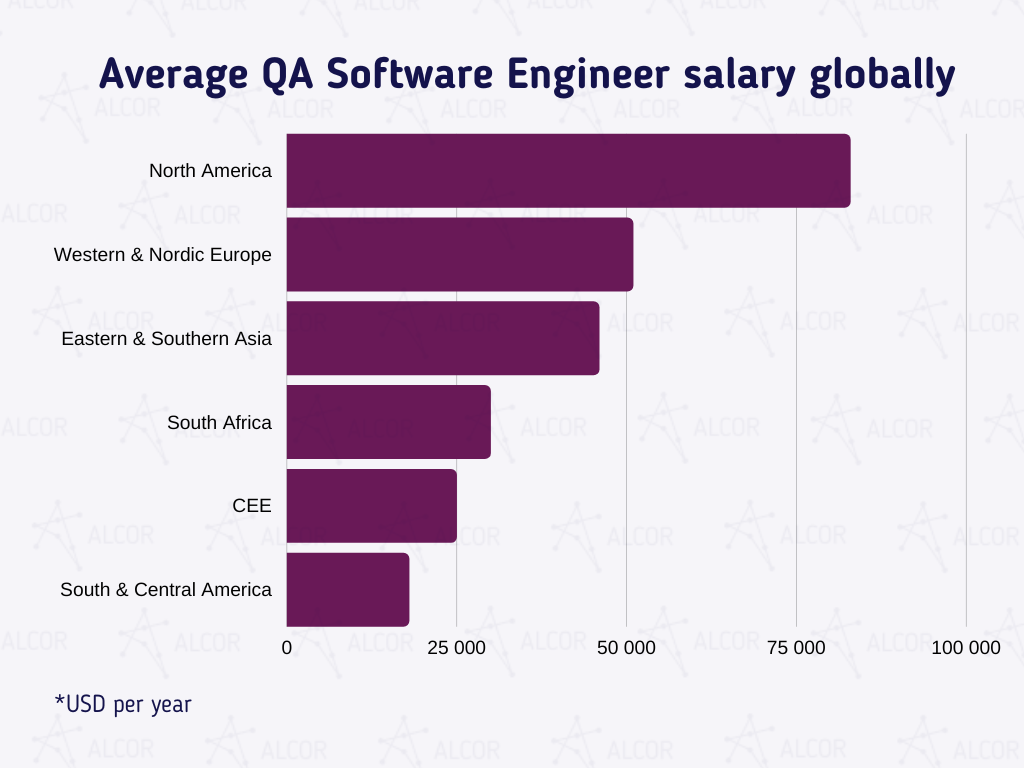
Robotics and automation engineering is a rapidly evolving field, and with that evolution comes a significant interest in compensation. Understanding the salary landscape for these professionals is crucial for individuals considering this career path, current engineers looking to advance, and companies seeking to attract top talent.
This article will explore the typical salaries for robotics and automation engineers, factors influencing those salaries, and the overall trends shaping the compensation landscape in this increasingly important sector.
Current Salary Overview
Data from various sources including the U.S. Bureau of Labor Statistics (BLS) and industry surveys, paints a picture of a field with competitive salaries.
While specific numbers can vary based on experience, location, and specialization, entry-level positions generally start around $70,000 to $85,000 annually.
Experienced engineers, particularly those with specialized skills or advanced degrees, can command salaries well into the six figures, often exceeding $120,000 or even $150,000 per year.
Factors Influencing Salary
Several factors play a crucial role in determining a robotics and automation engineer's salary. Experience is a primary driver; naturally, those with more years in the field and a proven track record will earn more.
Education also matters, with advanced degrees like a Master's or Ph.D. often leading to higher earning potential, especially in research-oriented roles.
Location is another significant factor. Areas with a high concentration of tech companies and manufacturing industries, such as Silicon Valley, Boston, or Detroit, typically offer higher salaries to compensate for the higher cost of living and competition for talent.
Specific skills and specializations can also influence pay. Proficiency in areas like artificial intelligence, machine learning, computer vision, and specific robotics platforms can command a premium. Companies are often willing to pay more for engineers who can directly contribute to innovative projects.
The size and type of company also contribute. Larger corporations with more resources tend to offer higher salaries and benefits packages than smaller startups.
Public companies often have established compensation structures, while startups might offer equity or performance-based bonuses as part of their compensation packages.
Industry Trends and Future Outlook
The demand for robotics and automation engineers is projected to continue growing in the coming years. This is driven by the increasing adoption of automation technologies across various industries, including manufacturing, healthcare, logistics, and agriculture.
According to the BLS, employment of mechanical engineers, a category that includes many robotics engineers, is projected to grow 6 percent from 2022 to 2032, about as fast as the average for all occupations.
This continued demand will likely put upward pressure on salaries, making it an attractive career path for aspiring engineers. Furthermore, the development of new technologies and applications within robotics and automation will continue to create opportunities for specialization and higher earning potential.
"The future of work is undeniably intertwined with robotics and automation," says Dr. Anya Sharma, a professor of robotics at a leading university. "Engineers in this field are not just building machines, they are shaping the future of industries and society."
Engineers should consider focusing on developing skills in emerging areas like collaborative robots (cobots), AI-powered automation, and sustainable robotics solutions to remain competitive in the job market.
Human Interest Angle
Consider the story of Maria Rodriguez, a robotics engineer who started her career with a passion for problem-solving. After earning her degree, she joined a manufacturing company where she designs and implements automated systems to improve efficiency and reduce workplace hazards.
"It's incredibly rewarding to see how my work can directly impact people's lives by making their jobs safer and more productive," Maria explains.
Her salary has enabled her to pay off her student loans and purchase a home, demonstrating the financial stability that a career in robotics and automation can provide.
Conclusion
The salary for robotics and automation engineers is competitive and reflective of the high demand for their skills. Factors such as experience, education, location, and specialization all play a role in determining earning potential.
With the continued growth of automation technologies, the future looks bright for professionals in this field, offering both financial rewards and the opportunity to shape the future of industry and society. Staying informed about industry trends and developing in-demand skills will be crucial for engineers looking to maximize their earning potential.
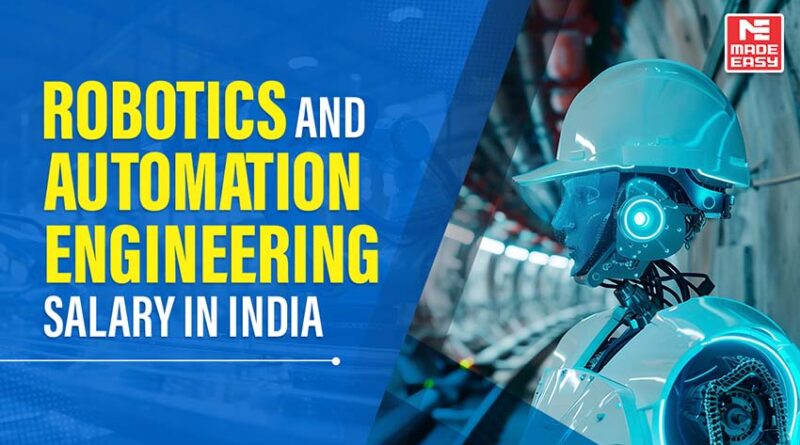

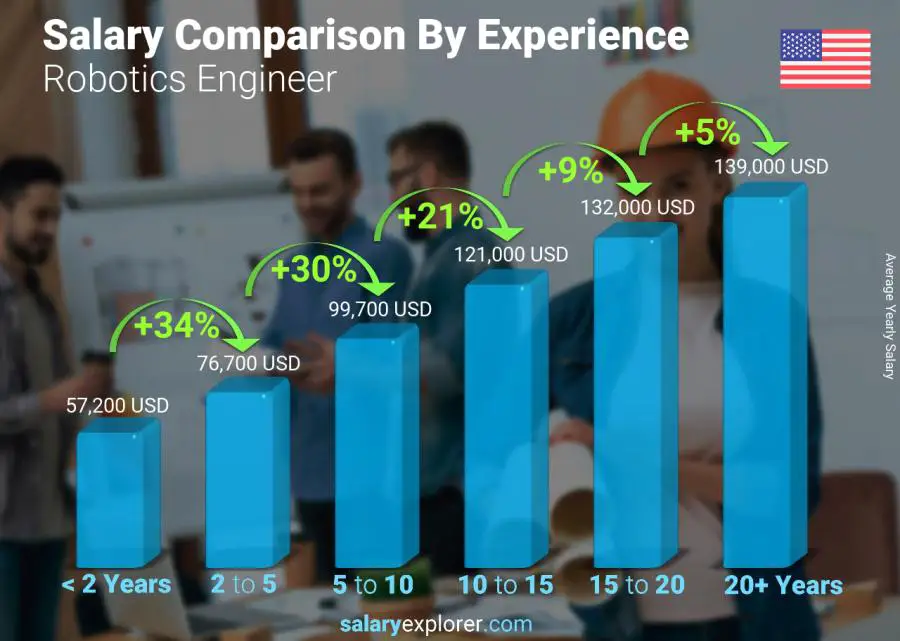




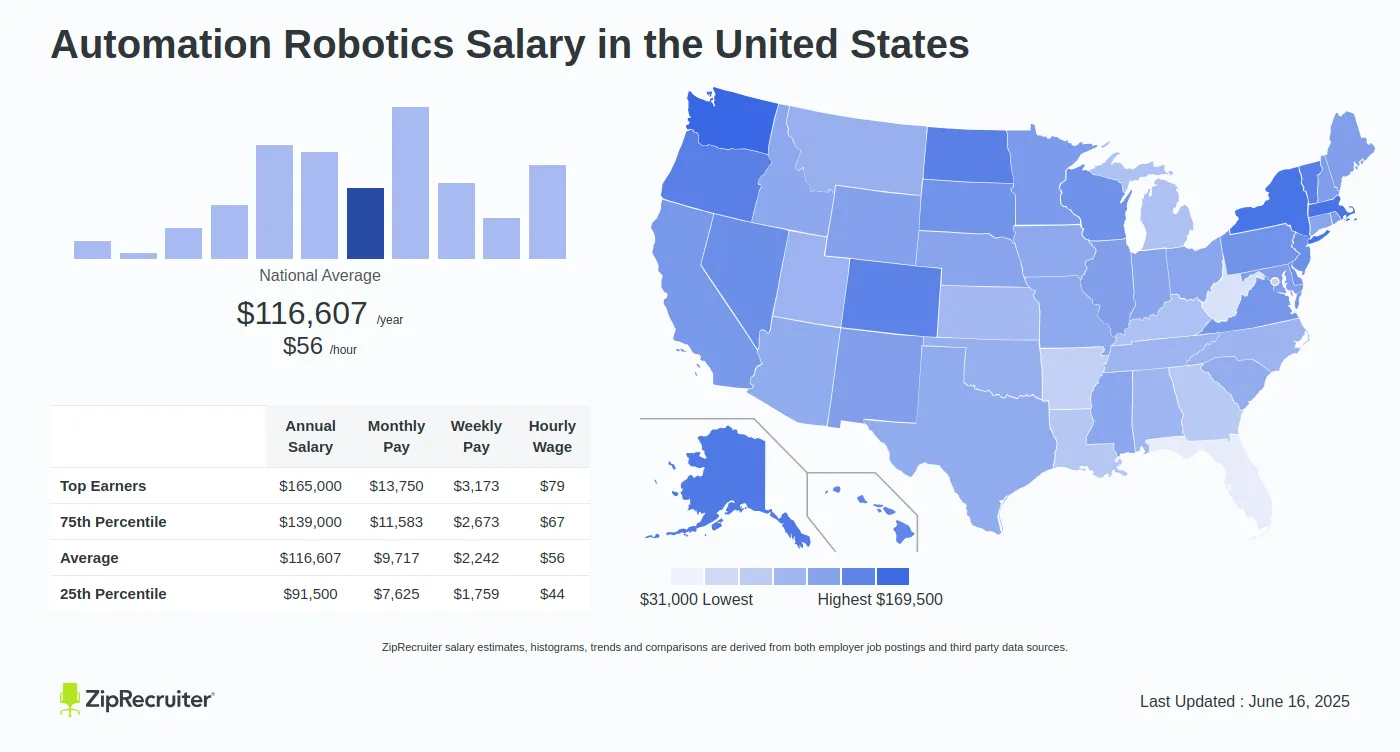
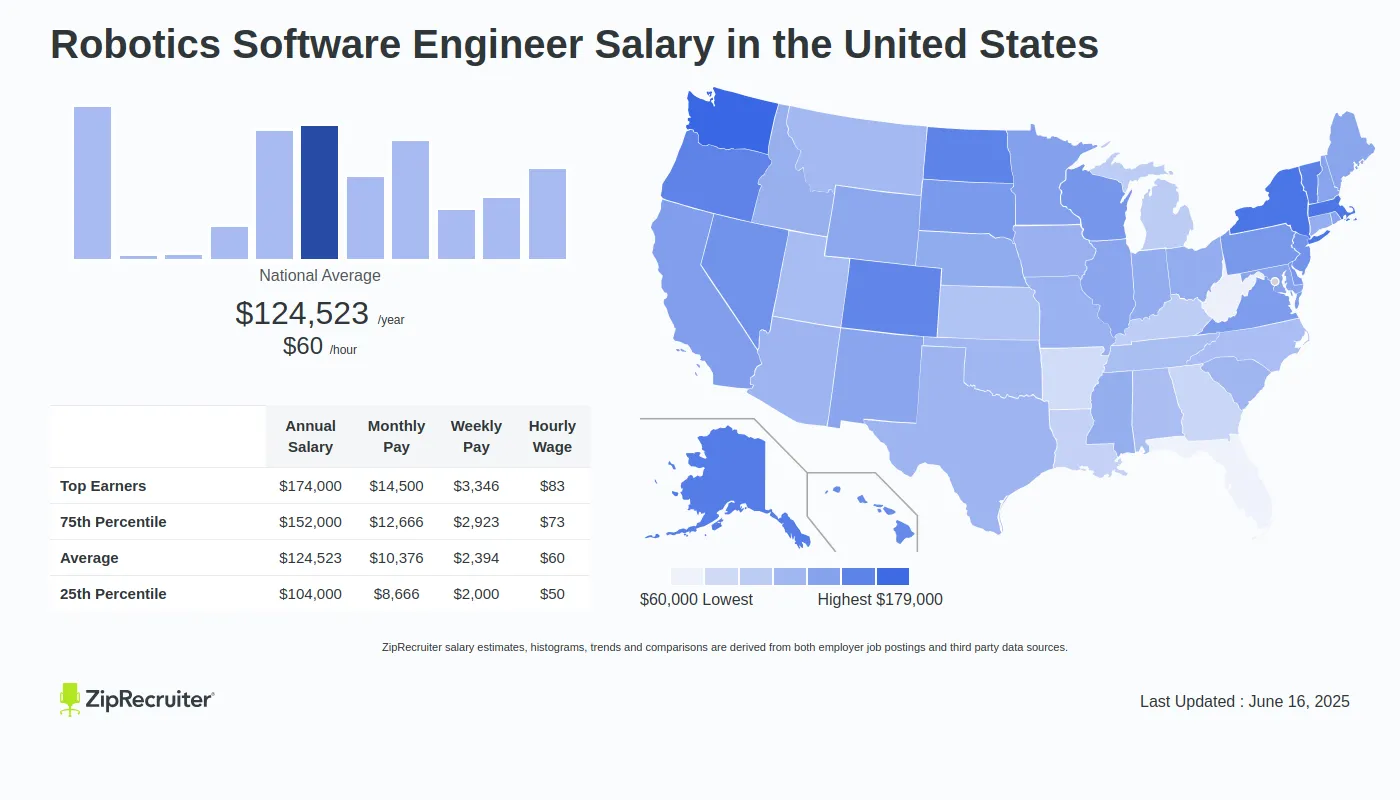



-4i7lw.jpg)
